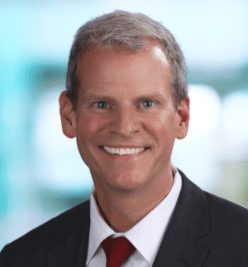
Scott Recinos, director of the Department of Homeland Security market at LMI, is a Pinnacle Awards finalist in the National Security/DHS Industry Executive of the Year category. Below, he shares his most notable achievements in the past year, what makes him successful in his current position, a turning point in his career during his time as a civil engineer and more.
What are your key achievements over the past year?
We achieved full operating capability in support of the U.S. Border Patrol’s Program Management Office Directorate, assembling a phenomenal team to provide system acquisition lifecycle and engineering support services. Building that team did not happen overnight. The customer afforded us a great deal of latitude in the contract to determine the best way to meet their objectives, which included organizational change management.
Determining the right team and solution required us to think outside the box. We spent a lot of time considering how many people we needed, the skill sets and experience they should have, how to organize and then how to manage the relationships with key stakeholders.
To see where we are after one year and how confident we are in our approach and our people — I’m really proud of that.
What are you most proud to have been a part of at LMI?
The PMOD task order is one of LMI’s most significant awards and it’s gratifying to have been a part of it from the beginning. When I joined LMI over a decade ago, I was part of a two-person team supporting USBP. We have spent years building a reputation with the client, bringing in talented people and establishing ourselves as a thought leader that can help with complex problems.
LMI is committed to scaling capabilities to support its clients, no matter how large the challenge. This award is a testament to that approach and it makes me appreciate how far we’ve come as an organization.
What has made you successful in your current role?
First and foremost, the people around me. I’m a big believer in delegating to team members and trusting them to get the job done — and I feel incredibly fortunate to be surrounded by so many smart people at LMI. I tell them all the time they make me look smarter.
I’m also grateful for the trusted relationships I’ve built with my clients. I think I’m adept at connecting with people and developing a rapport. When I meet with clients, they can trust I’ll be a straight shooter. I make them aware of LMI’s capabilities, but I won’t try to sell them something that isn’t right for their problem.
I put a lot of value in building those relationships the right way, and I think that’s played a role in my success.
What was a turning point or inflection point in your career?
I was 25, in my first full-time job as a civil engineer, when I planned and executed a study for Poolesville, Maryland, assessing the town’s sewage system for leaks. I found the work really interesting, especially the practical problem-solving. I took my responsibilities more seriously and received a lot of compliments from my leadership.
That’s when the switch flipped for me; I realized I could be a really effective consultant. I enjoyed working with customers to solve problems and knowing the outcomes, like a watertight sewage system, would benefit people’s lives.
I also gained an appreciation for the importance of pragmatism; it does no good to propose a solution that theoretically makes sense, but you can’t execute for whatever reason. Recognizing I could have real-world impact helped me discover my passion.

